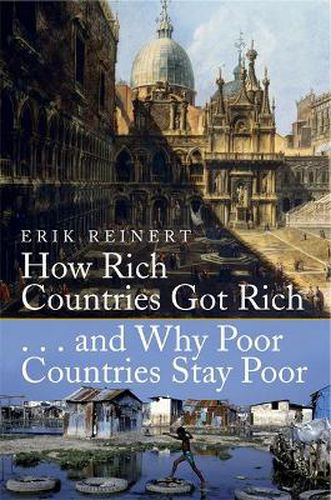Readings Newsletter
Become a Readings Member to make your shopping experience even easier.
Sign in or sign up for free!
You’re not far away from qualifying for FREE standard shipping within Australia
You’ve qualified for FREE standard shipping within Australia
The cart is loading…






How Rich Countries Got Rich is a narrative history of modern economic development from the Italian Renaissance to the present day.
In it Erik S. Reinert shows how rich countries developed through a combination of government intervention, protectionism, and strategic investment. Reinert suggests that this set of policies in various combinations has driven successful development from Renaissance Italy to the modern Far East. Yet despite its demonstrable success, orthodox development economists have largely ignored this approach and insisted instead on the importance of free trade.
Reinert presents a strongly revisionist history of economics and shows how the discipline has long been torn between the continental Renaissance tradition on one hand and the free market theories of English and later American economics on the other. He argues that our economies were founded on protectionism and state activism and could only later afford the luxury of free trade. When our leaders come to lecture poor countries on the right road to riches they do so in almost perfect ignorance of the real history of mass affluence.
$9.00 standard shipping within Australia
FREE standard shipping within Australia for orders over $100.00
Express & International shipping calculated at checkout
How Rich Countries Got Rich is a narrative history of modern economic development from the Italian Renaissance to the present day.
In it Erik S. Reinert shows how rich countries developed through a combination of government intervention, protectionism, and strategic investment. Reinert suggests that this set of policies in various combinations has driven successful development from Renaissance Italy to the modern Far East. Yet despite its demonstrable success, orthodox development economists have largely ignored this approach and insisted instead on the importance of free trade.
Reinert presents a strongly revisionist history of economics and shows how the discipline has long been torn between the continental Renaissance tradition on one hand and the free market theories of English and later American economics on the other. He argues that our economies were founded on protectionism and state activism and could only later afford the luxury of free trade. When our leaders come to lecture poor countries on the right road to riches they do so in almost perfect ignorance of the real history of mass affluence.